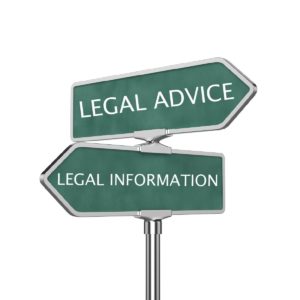By now, just about every law firm has a website. (If you know a firm that does not, please bring them into the 21st century.) A website is designated by a domain address, otherwise known as an Internet Uniform Resource Locator (“URL”).
For many reasons (marketing, availability, etc.), a law firm may want to use a URL that is different than a mere recitation of the law firm’s name. The question of what is ethically permissible for lawyers to use for their URLs has been considered by a number of different jurisdictions.
States that have looked at this issue consistently agree that, as with all lawyer communications to the public about their services, URLs cannot be false, deceptive, or misleading. They have also found that because web domain names represent site addresses, they are not technically trade names as defined under the ethics rules and are not limited by the restrictions on the use of trade names.
Some specific jurisdictions are discussed below:
North Carolina
A law firm may use a URL that does not include words or language specifically identifying it as the address of a website of a law firm, as long as it “is not otherwise misleading or false and the homepage of the website identifies the sponsoring law firm or lawyer.”
So, for example, URLs such as “Asbestos-Mesothelioma.com,” “DrugInjury.com,” and “NCworkinjury. com” are allowable, because none of them “make false promises or misrepresentations about a lawyer or a lawyer’s services.”
Lastly, North Carolina considers a law firm’s URL a trade name that must registered with the North Carolina State Bar and meet the requirements of North Carolina Rule Prof’l Conduct 7.5(a)
Arizona
A lawyer’s website address is not required to be the same as the law firm name, but it cannot be false or misleading. It can use the “.org” extension, but it cannot:
- use a “domain name that falsely implies that the lawyer or the law firm is affiliated with a particular non-profit organization or with a governmental entity.” (For example, the domain name www.countybar.com would erroneously suggest that the law firm has some special affiliation with the local bar association, and thus is impermissible.)
- state or imply that the law firm has qualifications, competence, or experience that it does not;
- state or imply that the lawyer or law firm has an affiliation or relationship with another organization unless that affiliation or relationship actually exists.
New Jersey
- the web site to which the browser is directed clearly and prominently identifies the name, bona fide street address, and phone number of the actual lawyer or law firm responsible for the site;
- the domain name is not be false or misleading;
- the name does not imply that the lawyer or law firm has been recognized or certified as a specialist other than as provided by rules of professional conduct; and
- the domain name is not be used in advertising exclusively as a substitute identifier of the law firm.
New York
Pursuant to N.Y. Rule of Prof’l Conduct 7.5(e), a lawyer or law firm may use a URL that does not include the name of the lawyer or law firm if:
- all pages of the web site clearly and conspicuously include the actual name of the lawyer or law firm;
- the lawyer or law firm in no way attempts to engage in the practice of law using the domain name;
- the domain name does not imply an ability to obtain results in a matter; and
- the domain name does not otherwise violate the N.Y. Rules of Professional Conduct.
Domain names such as www.win-your-case.com or www.settle-for-more.com are impermissible, because they “imply that the law firm can obtain favorable results in every matter regardless of the particular facts and circumstances.”
Kentucky
- The domain name is not false, deceptive, or misleading;
- The website to which the domain name connects prominently identifies the name of the firm or the lawyers involved and is not used as a substitute identity for the lawyer or the firm; and
- The domain name does not imply that the lawyer is a specialist, except as permitted by Rule 7.40.”
A lawyer who practices family law could use www.divorcelawyer.com, but she could not use www.greatestlawyerinky.com.
A domain name suggesting a connection with a governmental entity would also be improper. So a private law firm could not use a domain name of www.louisvillelegalclinic.com, because it might lead a prospective client to believe that the lawyer is part of a governmental entity or a non-profit organization.
Finally, “although a lawyer may use a domain name that indicates an area in which the lawyer practices, Rule 7.40 prohibits the use of any form of the words “certified,” “specialists,” “expert,” or “authority.” Thus, a domain name of www.accidentspecialist.com would not be allowed.
Ohio
The State of Ohio does not currently permit a law firm to operate under a trade name. But it has differentiated website domain names from trade names and allows them to be something other than law firms names, subject to some conditions. They cannot:
- be false, misleading, deceptive, or self-laudatory (e.g., www.willwineverycaseforyou.com is not allowed);
- imply special competence or experience (e.g., www.specializedpersonalinjurylawyers.com is not permissible).







